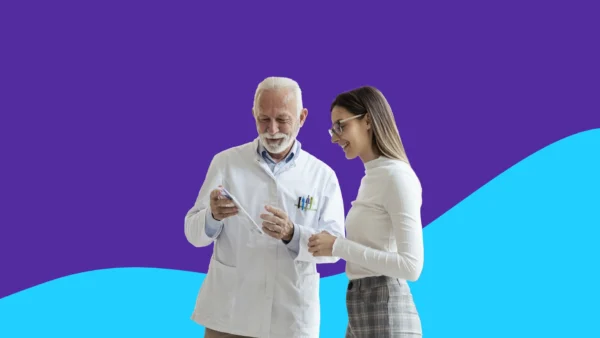Whether it’s answering questions about prescription drugs, providing advice on over-the-counter medications, or monitoring for drug interactions and side effects, pharmacists are uniquely qualified to help patients with their medication needs. They are accessible, knowledgeable, and can provide a personal touch to the healthcare experience that is often missing in today’s fast-paced medical environment.
Patients often seek advice from their pharmacist for a number of reasons. They may find it’s more convenient to visit their pharmacist than wait weeks or months to visit their primary healthcare provider for a minor concern. Ailments, such as traveler’s diarrhea or indigestion, can easily be treated by a pharmacist. Patients may also have concerns about insurance and medication costs, or they might just need someone to talk to about other health issues.
Continue reading to learn more about how pharmacists can help patients get the most out of their pharmacy visits.
7 ways to help patients get the most out of their pharmacy visit
There are several ways pharmacists can help patients get the most benefit out of visiting the pharmacy. Pharmacists not only help support patients with their medication concerns but also assist with other aspects of treatment.
1. Medication counseling
Counseling patients about their medications is a huge part of a pharmacist’s role. Pharmacists can explain how to properly take a medication, including educating on the correct dosage and when to take the medication. They can provide instructions on how to properly store the medication and what to do if patients experience certain side effects. Pharmacists can also recommend a medication therapy management (MTM) session to review the patient’s medication regimen and ensure the patient is getting the most appropriate and cost-effective therapy.
2. Monitoring for drug interactions and side effects
Pharmacists can routinely check for any potential drug interactions that can alter the effectiveness of a patient’s medications or increase the risk of adverse effects. Asking patients about new medications, including prescription, over-the-counter medicines, and herbal supplements, is a good way to ensure all possible interactions are being monitored. Pharmacists can also advise on any precautions that should be taken to avoid drug interactions.
3. Providing vaccinations
Many patients may be unaware of the types of vaccines that pharmacists can administer. Asking if patients are up-to-date on their vaccines is a good way to open up the conversation. Pharmacists are able to educate about possible side effects and whether a specific vaccine is appropriate for a patient. They can also help with tracking and documenting vaccines, which is important for maintaining a person’s vaccination history.
4. Discussing costs and savings options
Pharmacists can inform patients about lower-cost alternatives, especially if cost is a concern with a certain medication. Patients might not understand that generics work the same and are more cost-effective than brand-name drugs. Pharmacists can offer other suggestions for saving on medications such as using prescription discount cards, applying for patient assistance programs, and purchasing a 90-day supply instead of a 30-day supply.
5. Remind patients about health screenings
Pharmacists can consider hosting screenings for high blood pressure, diabetes, and low bone mineral density. By reminding patients about periodic health screenings at the pharmacy, pharmacists can ensure that patients are taking advantage of opportunities to improve their health and can also help identify potential health problems early. Patients can attend these screenings to learn more about their condition and even use screenings as an opportunity to ask questions about symptoms or other concerns that are bothering them.
6. Communicating with the healthcare team or insurance company
Pharmacists can collaborate with a patient’s doctor or healthcare provider to help manage a patient’s overall health and well-being. If a patient is at risk of a drug interaction or severe adverse effects, pharmacists can consult the patient’s healthcare provider to resolve potential problems. Pharmacists can also assist with prior authorizations by working with the patient’s doctor to obtain insurance coverage for prescribed medications. If coverage is denied, pharmacists can assist patients in filing an appeal.
7. Syncing medication refills
Pharmacists can assist patients with synchronizing their medication fills to help improve medication adherence and outcomes. Synchronizing medication fills allows patients to refill all of their prescriptions on the same day each month. This can reduce the burden on patients of remembering to refill multiple prescriptions at different times and reduce the risk of medication non-adherence. Medication synchronization is a convenient service that some patients might not know about.
Pharmacists as a vital part of the healthcare team
Pharmacists are highly trained and knowledgeable healthcare professionals who play an important role in managing medication therapy and achieving optimal health outcomes. They can provide a wide range of services to assist patients. By working closely with patients, pharmacists can help them make informed decisions about their health and improve their overall quality of life.











